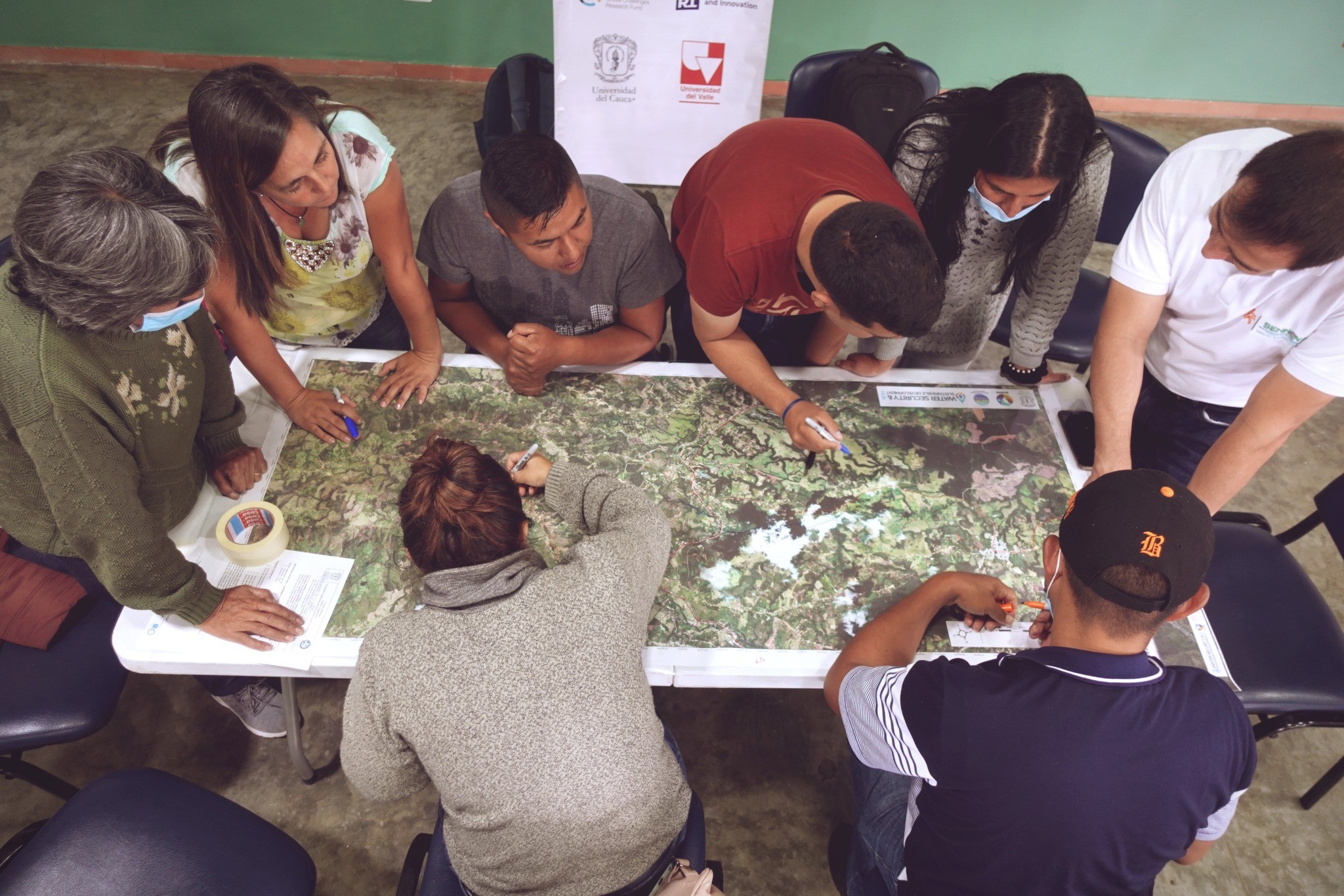Aim and overview
Effective action requires data from across the whole water system, including about water use, quantity, quality, attitudes, and risks to name a few components. Data is crucial for creating and utilising tools and systems that aid in sharing, analysing, and converting information info formats that communities and stakeholders can use to inform decisions about current and future needs, and have confidence in outcomes. Our aim was to build and develop a comprehensive suite of tools to help improve data collection, management, and analysis across social, economic, physical, and natural systems; and build long-term capacity, ensuring a systems approach to water security that embeds equality for all. We also hoped to help reduce water security planning costs in developing nations with tools for rapid optioneering to quickly prototype, assess benefits, and approximate costs of water security interventions.
Key questions
- What are the interconnections between concepts, locations, meanings, and practices, and how do these help or hamper water security decisions?
- What incentives, constraints, motivations, subtleties, power, and decision‐making processes exist in our collaboratories?
- How do we develop a framework to assess water security pathways against key human rights criteria (safety, accessibility, equitability (inc. gender, age, race), availability, quality, acceptability, and affordability)?
- How can we empower communities and amplify marginalised voices to begin dialogue between stakeholders around action and implementation for change?
- How do we improve the capability of all stakeholders to work together inclusively?
- What are the outcomes and tradeoffs of decisions made in water management, and how do these impact different communities?
- How can we enable any stakeholder (farmers, local organisations, NGOs, industry, governmental bodies, etc.) to contribute to data collection, and increase public capacity and engagement in water management?
- What do stakeholders need from an accessible, scalable set of data platforms, apps, and analytic tools in order to support their decision making?
More to come on our key findings.

Working with local communities in Colombia



